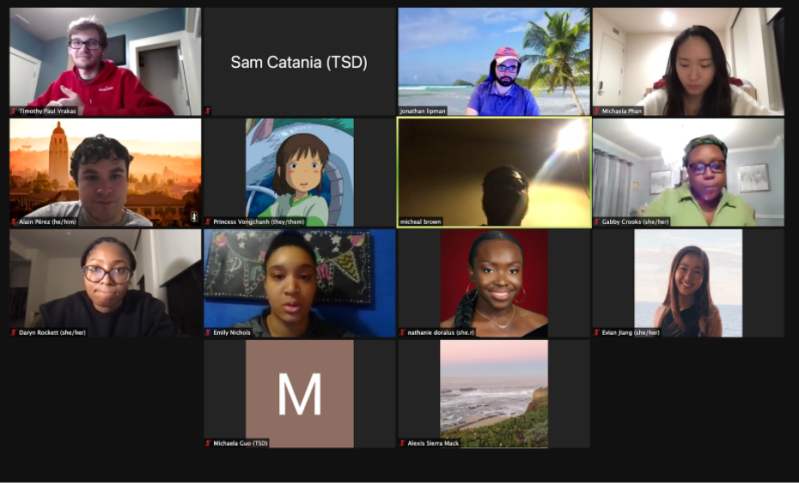Undergraduate senators discussed long-term plans to shift capital reserve investments to industries and companies considered more “ethical” by the student body at their weekly meeting on Tuesday. Senators also expressed concerns about Stanford’s recent decision to cancel plans for many undergraduates to come to campus during winter quarter and discussed pushing for academic accommodations.
Senator Jonathan Lipman ’21 introduced a draft of a survey to be sent to students, which explained the potential implications of a shift in investments. Lipman hoped to gather student preferences on which industries the Associated Students of Stanford University (ASSU) should invest in. The conversation came amid an ongoing push for the University to divest assets from fossil fuel companies, which was rejected by the Faculty Senate in May. Past ASSU focus groups indicated student support for a shift toward ethical reinvestment.
Though senators expect the shift may require an ASSU constitutional amendment, they expressed their intent to start the process earlier. “We’re basically trying to design a methodology to be responsive to the ethical priorities of the student body, and also reasonably responsible stewards of the capital,” Lipman said.
Data from the ASSU investment manager suggests that Environmental, Social, Governance funds, a form of socially responsible investment, have recently yielded higher returns but are also subject to greater fluctuation. Currently, investment returns contribute a portion of funding for voluntary student organizations (VSOs), along with funds collected from the ASSU’s yearly student fees.
Senator Danny Ngyuen ’22 said they hoped the ASSU would eventually divest from Palantir and technology companies that are creating facial recognition software and “selling to pretty abusive institutions.” Facial recognition software has been used by police departments to identify and prosecute protestors, and Palantir has faced criticism for alleged human rights violations related to its work for U.S. Immigration and Customs Enforcement.
Lipman specified that while it might be possible to avoid investments in specific companies, the ASSU invests in broad market funds offered by Vanguard, not individual stocks, likely preventing the ASSU from eliminating all potentially problematic stocks.
Senators also discussed an ASSU response to the University’s cancellation of winter quarter plans. Ngyuen shared their intent to communicate student testimonials asking for academic and financial accommodations with Vice Provost Susie Brubaker-Cole and Provost Persis Drell, noting that many students brought up reimplementing a universal satisfactory/no credit grading policy and concerns about housing and non-refundable travel costs.
Stanford on Monday extended its deadline for students to file for a leave-of-absence from Jan. 11 to Jan. 19, which was a concern amongst students.
Daryn Rockett ’23 voiced concerns she said she had heard from the director of Counseling and Psychological Services (CAPS) that students are underutilizing CAPS resources because of mistrust and the online format and suggested appointing a “professional responsible for handling race-based stress” at community centers.
“They feel as though some students don’t fully trust CAPS, and that’s linked to a long history of generally the medical industry not treating people of color so well — specifically Black people,” Rockett said.
The Senate also unanimously approved an appropriations bill for $5,000 to fund the Sexual Health Peer Resources Center. Lipman questioned why the ASSU was responsible for funding the center rather than the University, eliciting nods from other senators. Senator Tim Vrakas ’21 agreed but responded, “It’s better that someone does it than no one does.”
Senators also delayed voting on a resolution that would make the Leland Stanford Junior University Marching Band eligible for annual ASSU grants. The band in its current form is not eligible because it is not a VSO. Members requested that the ASSU grant the band a special exemption, saying it is “essentially” student-controlled. Next week’s vote is largely procedural and likely to pass.
Contact Sam Catania at samcat ‘at’ stanford.edu and Michaela Guo at mcguo ‘at’ stanford.edu.
